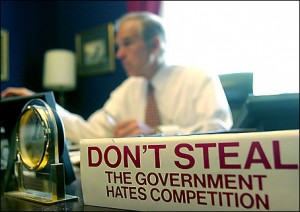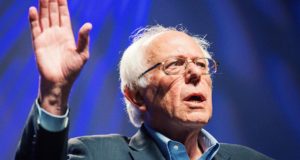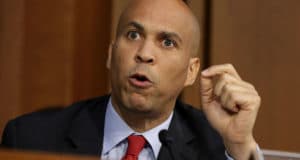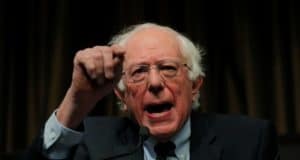This week introduces a new section to our Political area. We will begin showcasing the candidates who have announced formal runs for the Republican primary. This will be a chance for our readers to weigh in on the pros and cons for each candidate. Please keep all comments respectable. Politics can be heated, but please maintain civility in the comments section please!
 Ron Paul, U.S. Congressman from the 14th district of Texas, is a staunch proponent of limited constitutional government. His official biography describes him as a champion of low taxes, free market enterprise, and a return to sound monetary policies. Paul is so committed to never vote for legislation not expressly authorized by the Constitution that his voting record has earned him the title “Dr. No.” Ron was a practicing medical doctor for many years, a firm opponent of abortion, and an advocate for returning to the ideals and principles of the authors of the Constitution.
Ron Paul, U.S. Congressman from the 14th district of Texas, is a staunch proponent of limited constitutional government. His official biography describes him as a champion of low taxes, free market enterprise, and a return to sound monetary policies. Paul is so committed to never vote for legislation not expressly authorized by the Constitution that his voting record has earned him the title “Dr. No.” Ron was a practicing medical doctor for many years, a firm opponent of abortion, and an advocate for returning to the ideals and principles of the authors of the Constitution.
Background
Ron Paul was born in 1935 and raised in Pittsburgh, Pennsylvania. He met and fell in love with his wife, Carol, while still in high school. Paul’s higher education included a degree from Gettysburg College in 1957 and a medical degree from Duke University in 1961. Ron and Carol married during his last year at Gettysburg College and the two moved to Detroit after he graduated from Duke. During the height of the conflict in Vietnam, he was drafted by the Air Force and served as a flight surgeon from 1963-65 and in the Air National Guard from 1965 to 1968.
After his military service, Ron Paul and family settled in Texas where he specialized as a doctor of obstetrics and gynecology. By his own estimation, Paul delivered over 4,000 babies during his medical career, which extended on into his time as a member of Congress.
Political Career
Ron Paul became active in politics in the early ‘70s and made his first bid for Congress in 1974. Though he failed to win a seat that year, he was victorious two years later in a special election to replace resigning representative, Robert R. Casey. In that same year, 1976, he founded FREE, or the Foundation for Rational Economics and Education. FREE describes itself as a “non-profit, non-partisan, educational foundation dedicated to public education on the principles of free-market economics, sound money and limited government.”
In 1978, Paul finally won a full term to Congress and was re-elected twice. During this time he immerged as a vocal critic of the country’s financial system, writing several seminal books that outlined his views of a sound constitutional economy and his opposition to abortion. Among those works he wrote Gold, Peace and Prosperity: The Birth of a New Currency; The Case for Gold: A Minority Report of the U.S. Gold Commission; and Abortion and Liberty.
Paul was replaced in his congressional district by Tom DeLay after he lost a senatorial run against Phil Gramm in 1984. He returned to his private medical practice for a short while before deciding to run in 1988 as the Libertarian Party candidate for president. Though he is often thought of as a natural for a Libertarian candidate, Paul caused problems for both conservatives and Libertarians. His strong anti-abortion platform and desire to limit taxes and reduce the size of government was attractive to both conservative Republicans and Libertarians, but his view on abortion legislation offended the latter group with their historic support for personal liberty and opposition to laws and other restrictions on the actions or lifestyles of individuals.
After a nearly ten-year absence from the national political scene, Paul came home to the Republican Party and defeated Greg Laughlin in a bitter primary in which everyone was against him except the voters. Since that victory in 1996, he has continued to serve the people of the 14th congressional district of Texas to the present. During this period no one has embraced and taken advantage of the power of the Internet more than Ron Paul. On November 5, 2007, a group of his supporters raised more than $4 million in one day for his campaign.
Paul’s unusual blend of Libertarian views and conservative Republican values, support from a diverse range of often disaffected voters, and track record of speaking his mind, continues to make him a difficult presidential candidate to pigeon-hole.
Platform
Having authored numerous books and with a long Congressional record, one doesn’t have to look far to know exactly what Ron Paul stands for. Some of the major accomplishments he highlights on his official web site include:
- Never voted to raise taxes.
- Never voted for an unbalanced budget.
- Never voted for a federal restriction on gun ownership.
- Never voted to raise congressional pay.
- Never taken a government-paid junket.
- Never voted to increase the power of the executive branch.
- Voted against the Patriot Act.
- Voted against regulating the Internet.
- Voted against the Iraq war.
- Does not participate in the lucrative congressional pension program.
- Returns a portion of his annual congressional office budget to the U.S. Treasury every year.
Throughout his political career, Ron Paul has maintained an unwavering consistency on executive power, taxation, and pro-life issues. He voted against the Patriot Act and the Iraq war as opposed to most other Republicans. It should be pointed out he does support the U.S. military action in Afghanistan. He has consistently voted against farm subsidies, Internet regulation, and other programs that expand the scope and spending of the federal government.
The issues where Paul most often finds himself at odds with mainstream Republicans is over his insistence on doing away with the Federal Reserve system and discontinuing the war on drugs. While many conservative desire a lessened role of centralized government and emphasis on state’s rights, they tend to be uncomfortable with the conclusions drawn by Paul and his followers. And, though many did not desire John McCain as their first or even second choice, they still smart from Paul’s decision to back Constitution Party candidate Chuck Baldwin in 2008.
Conclusions
Congressman Paul is one of a few in Washington – he believes what he says. He has maintained a consistent and unwavering allegiance to the ideal and letter of the Constitution. Whether he is electable is another issue altogether. Many bristle at that term, but it is a political reality. Paul himself has proven to stand on principle even if it means helping pave the way for disastrous choices for president. Sometimes he is probably judged more by his followers than on his own merits. There is a decided anti-establishment bent among many in the rank and file of Ron Paul followers that disturbs more than just the neo-cons and establishment Republicans. Only time will tell if Paul can win over conservatives still unsure of his viability, in a run against a president who must not be allowed to have a second term.
 Off The Grid News Better Ideas For Off The Grid Living
Off The Grid News Better Ideas For Off The Grid Living



